The Future of AI in Space Exploration
- March 13, 2025
- 0
🚀 So, How Do You Understand AI in Space? Artificial Intelligence (AI) is no longer just a futuristic concept—it’s actively shaping the way we explore the cosmos. From
🚀 So, How Do You Understand AI in Space? Artificial Intelligence (AI) is no longer just a futuristic concept—it’s actively shaping the way we explore the cosmos. From
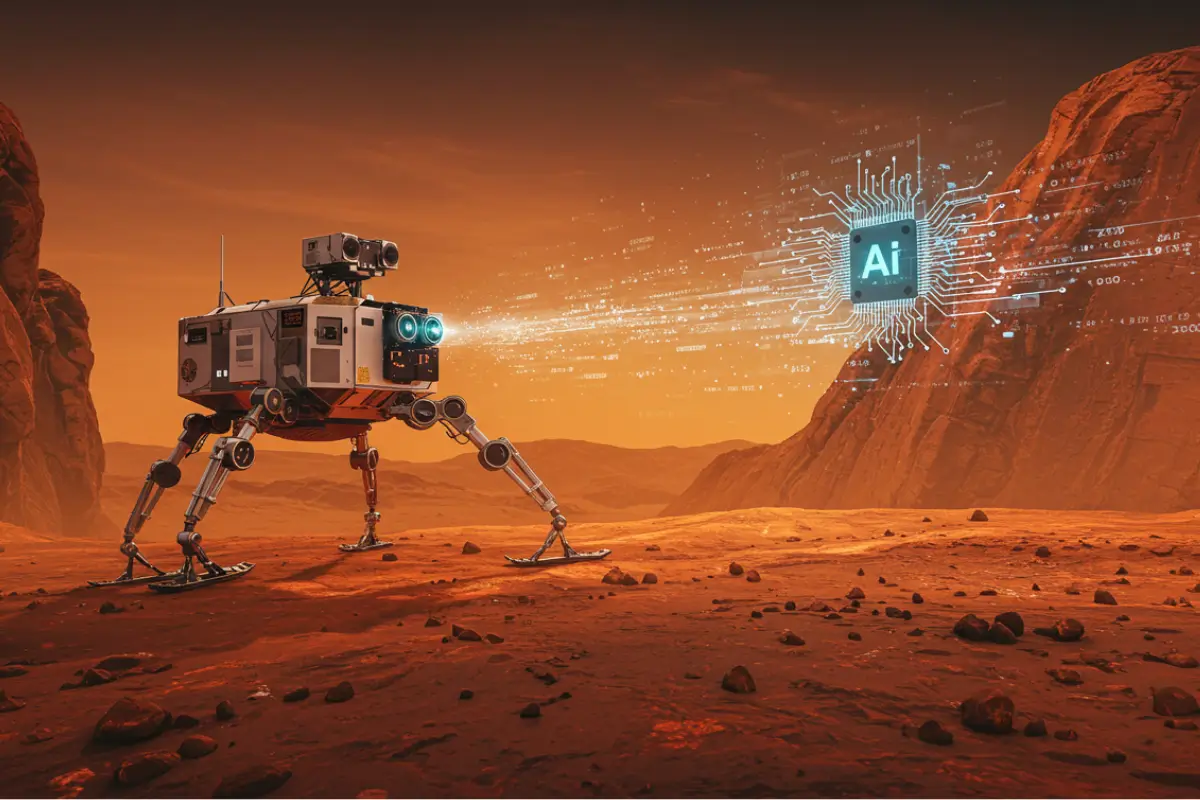
Artificial Intelligence (AI) is no longer just a futuristic concept—it’s actively shaping the way we explore the cosmos. From self-operating rovers on Mars to AI-driven telescopes scanning distant galaxies, the role of AI in space exploration is expanding at an astonishing rate.
As someone deeply fascinated by technology, I can’t help but be amazed by how AI is transforming our quest to understand the universe.
I know that this topic is perhaps what most people want to become reality, and yes it can be, but I’m already saying that it will take a while for that to happen.
In this article, we’re go see how AI is revolutionizing space travel, assisting astronauts, and even making independent discoveries. Buckle up, because we’re about to explore the next frontier of AI!
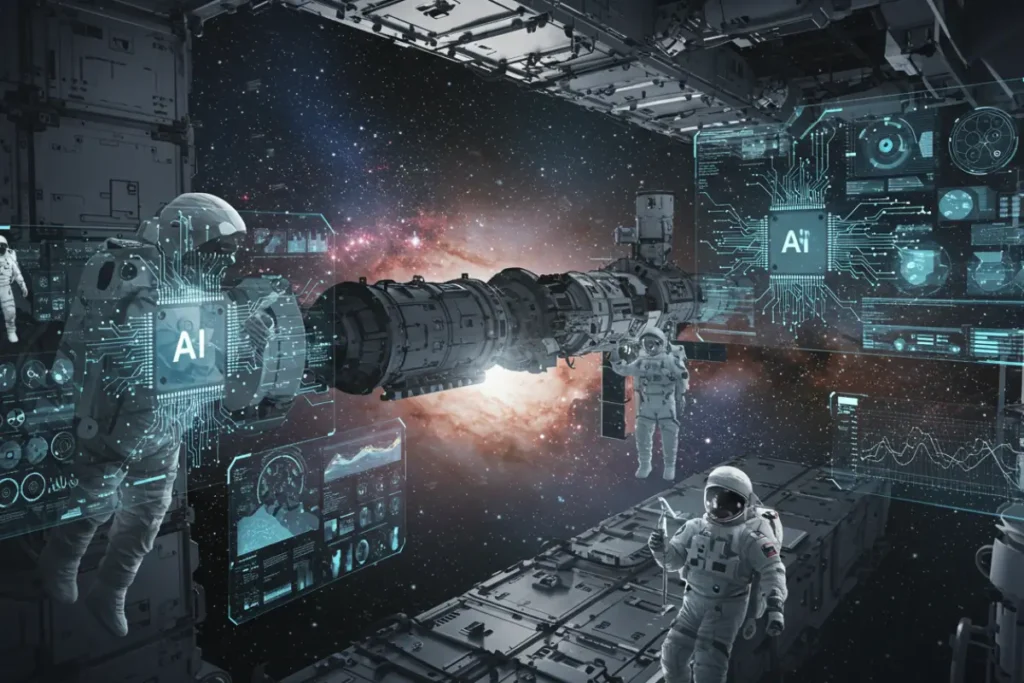
One of the biggest contributions of AI in space is in the development of autonomous rovers and probes.
Take NASA’s Perseverance rover, for example. It utilizes AI to navigate the rough terrain of Mars, making real-time decisions without waiting for commands from Earth. AI helps it avoid obstacles, analyze soil samples, and even search for signs of ancient life.
Some key advancements AI has brought to space rovers include:
With AI, these machines don’t just follow instructions—they think and adapt, bringing us valuable insights from other planets!
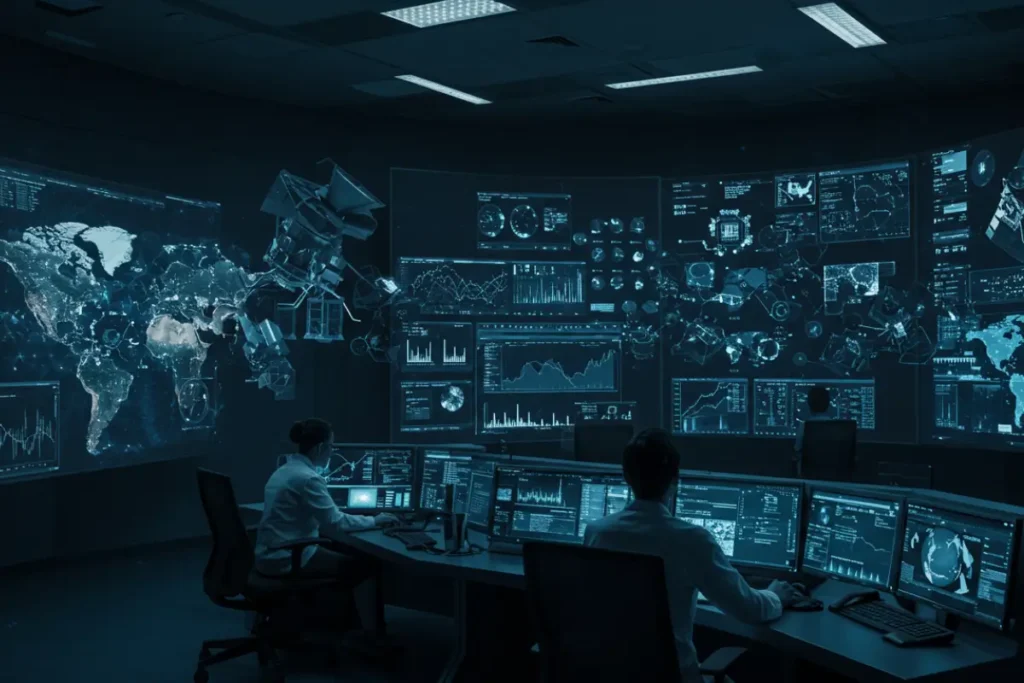
AI isn’t just helping machines—it’s also supporting astronauts! Imagine an AI assistant for space missions, similar to how we use Alexa or Siri on Earth.
In fact, CIMON (Crew Interactive Mobile Companion), an AI-powered robot developed by IBM and Airbus, is already assisting astronauts aboard the International Space Station (ISS).
How is AI helping astronauts?
As deep-space missions to Mars and beyond become a reality, AI assistants will be crucial in ensuring astronaut safety and efficiency.
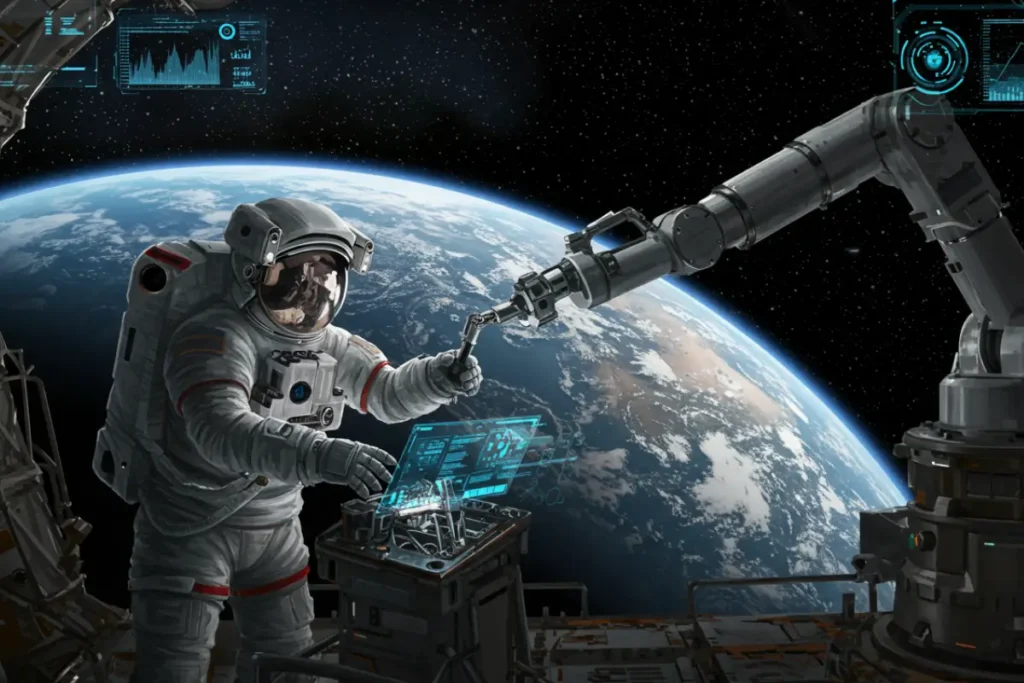
NASA and other space agencies are using AI in groundbreaking ways to explore the furthest reaches of space.
AI-driven telescopes and space probes are helping scientists discover new exoplanets, study black holes, and analyze cosmic data faster than ever before.
With AI’s rapid advancements, we could be on the brink of discovering new habitable planets or even signs of extraterrestrial life! 🌍👽
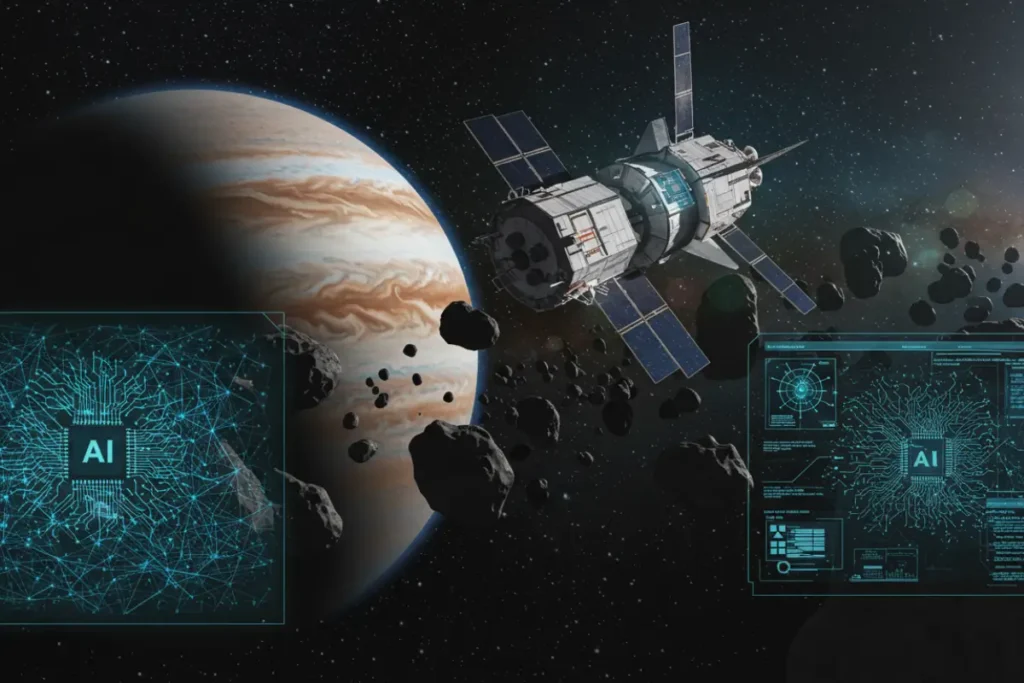
As space tourism and interplanetary travel become closer to reality, AI will play a pivotal role in making space travel safer and more efficient. Here’s what’s coming next:
Imagine a future where AI is not just assisting astronauts but actually leading interstellar missions.
Sounds like something straight out of a sci-fi movie, right? But with rapid advancements, it might happen sooner than we think!
| AI Application | Purpose |
|---|---|
| Autonomous Rovers | Navigate planets, analyze samples |
| AI Assistants | Help astronauts in deep space |
| AI-Powered Telescopes | Discover exoplanets, study black holes |
| Spacecraft AI | Pilot autonomous missions |
| AI in Space Colonization | Build lunar/Mars habitats |
For more detailed insights, check out these sources:
Also, don’t forget to check out more AI-related content on Futuristic Intellect!
➡️ Can AI replace astronauts in space? 🔽 No, but AI can assist astronauts by improving safety, automation, and data analysis.
➡️ How does AI help in finding new planets? 🔽 AI processes massive amounts of space telescope data to detect light variations from distant stars, signaling potential exoplanets.
➡️ Will AI eventually pilot spacecraft? 🔽 Yes! AI is already assisting in navigation, and future missions could see AI-controlled spacecraft.
➡️ Is AI being used to search for alien life? 🔽 Absolutely! AI is analyzing radio signals, planetary atmospheres, and even chemical compositions to find signs of life.
AI is revolutionizing space exploration, from autonomous rovers to deep-space telescopes. The future of AI in space isn’t just promising—it’s inevitable.
Well, just to be clear, I don’t think this will make humanity’s great dream of colonizing space come true, but it’s certainly a start.
As we push further into the cosmos, AI will be our most trusted companion, guiding us toward discoveries beyond our wildest imagination.
What do you think about AI in space? Drop a comment below and let’s discuss! 👇🚀
If you found this article interesting, don’t forget to share it! 😊🌍✨